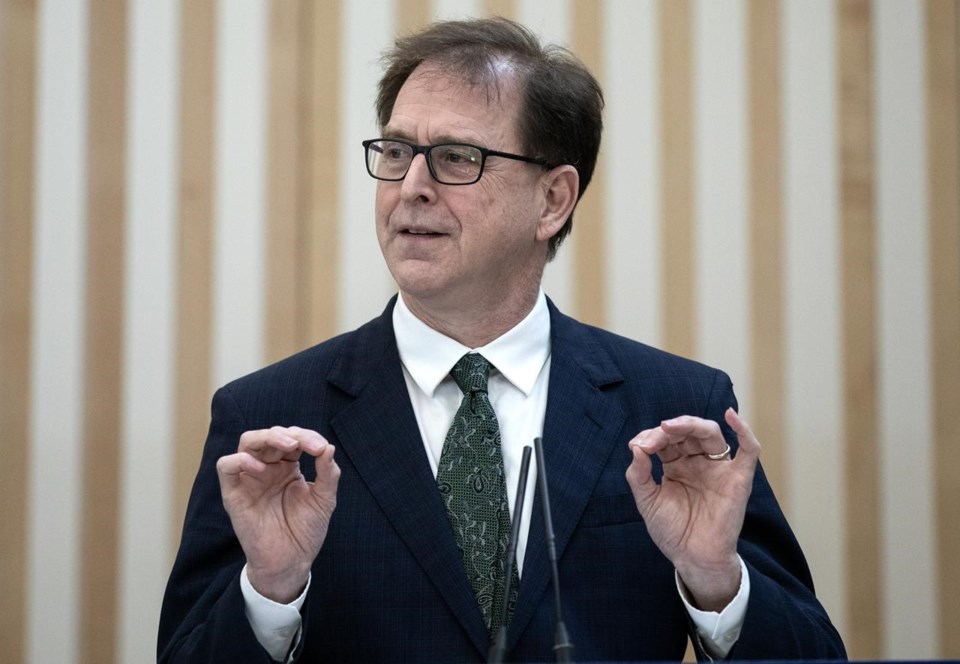VANCOUVER — The British Columbia government is spending more money to recruit and retain health-science workers, while expanding an incentive program to dozens more rural communities.
Health Minister Adrian Dix says $155.7 million has been set aside at a time when B.C. has a "significantly increasing population" and more skilled health-care staff are needed, particularly in remote communities.
There are dozens of health occupations that will benefit from the funding, including audiologists, dietitians, lab technologists and radiation therapists.
Dix says $73.1 million will go toward keeping health and clinical support workers in rural areas and giving signing bonuses for those who fill high-priority health vacancies, while another $60 million will be set aside for professional development supports and mental health and wellness services for workers.
Dix says $15 million will be spent on peer support and mentorship for new health-care graduates and internationally-educated health professionals, and $7.6 million is slated for training, bursaries, and offsetting licensing and exam fees.
The province says in a news release that its rural retention incentive program, which provides up to $8,000 per year to health care workers in small communities, is being expanded to 56 more locations.
That means a total of 74 communities -- including Hope, Fernie, Golden, Quesnel and more -- will receive the one-year program's benefits, which last until the end of March 2025.
Norah Miner, labour relations coordinator of the Health Sciences Association of BC, lauded the changes, saying it will impact about 20,000 specialized health professionals across 70 different disciplines working in the province.
She said more health-science workers are needed.
"Like the doctors and nurses, these health science professionals have been facing critical shortages and crushing workloads as a result of things like the COVID-19 pandemic and the opioid crisis," Miner said.
She said the funding will allow for the recruitment of "desperately needed" professionals to rural communities.
"These shortages of health-science professionals have built up within the system for a really, really long time and these shortages are made worse by provincial governments who fail to act on warnings that we've founded in the past," she said.
"It will take some years to undo that neglect to the specialized services within the health-care system. These initiatives will make a real difference and will move us further in the right direction."
This report by The Canadian Press was first published May 1, 2024.
The Canadian Press



